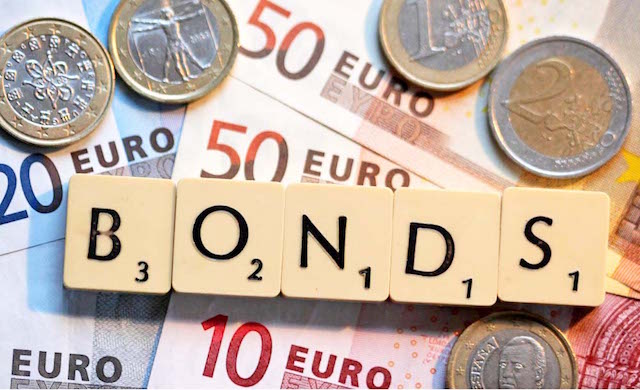Yields on Ghana’s Eurobonds are expected to be elevated in the near term, following the announcement by the government to suspend payments on selected external debts.
Some analysts believe this is due to the unclear nature of the parameters of the external debt restructuring.
The Eurobond yields had declined following the announcement of a staff-level agreement last week by the International Monetary Fund.
But the government in a statement as a pre-condition of securing a programme from the IMF said the suspension of interest payments will not include the payments of multilateral debt, new debts (whether multilateral or otherwise) contracted after December 19, 2022 or debts related to certain short term trade facilities".
“We are also evaluating certain specific debts related to projects with the highest socio-economic impact for Ghana which may have to be excluded. This suspension is an interim emergency measure pending future agreements with all relevant creditors”, the statement explained.
But some analysts believe the suspension of interest payments of the $13 billion Eurobonds may compel investors to demand higher yields on their bonds.
Higher yields mean that bond investors are owed larger interest payments, but this may also be a sign of greater risk. The riskier a borrower is, the more yield investors demand.
commenting, Databank Research said “while external debt restructuring parameters remain unclear, we are likely to see elevated Eurobond yields in the near term”.
Government to raise ¢1.438bn in T-bills
Meanwhile, the government will raise ¢1.438 billion to refinance the upcoming Treasury bill maturities of ¢1.157 billion in this week's T-bill auction.
The government accepted¢3.67 billion out of total bids worth ¢3.93 billion, as demand remained strong.
Yields on the T-bill curve continued to decline as the 91-day tenor went for 34.93% (-64 basis points). The 182-day and 364-day bill yields also declined to 36.03% and 36.19% respectively.
Transfer of funds dominate secondary market activities
Aggregate turnover on the secondary market stood at ¢2.12 billion, slowing 30.91% week-on-week. However, most of the activities involved the transfer of funds from pooled investor accounts to individual accounts.
This is expected to continue this week as investors continue to ponder the domestic debt exchange programme.
Latest Stories
-
AI, automation, and the future of threat intelligence
60 minutes -
Partey defends Kudus after challenging season at West Ham
2 hours -
Police arrest man with 40 parcels of suspected narcotics on Accra-Somanya highway
2 hours -
Joy Prime to premiere “PrimeTime” with George Quaye on June 18
4 hours -
Israel carrying out ‘extensive strikes’ across Iran as Tehran warns ‘more severe’ response coming
4 hours -
Government suspends GH₵1 fuel levy indefinitely, new date to be announced later
4 hours -
Democratic state politician and husband shot dead in targeted attack
5 hours -
15 killed by Israeli fire near Gaza aid site, hospitals say
5 hours -
Ashaiman NDC in shock as chairman Shaddad Jallo dies
5 hours -
Mahama converts Daboya College into public Teacher Training Institution, revives Doli project
6 hours -
Prioritise prudence, not foreign debt – Deputy Ahafo Regional Imam implores African leaders
6 hours -
Mahama promises STEM School and TVET Centre for Savannah Region
6 hours -
Mahama announces new public university for Savannah Region
6 hours -
Ahiagbah demands Health Minister’s dismissal over handling of nurses’ strike
6 hours -
Mahama’s clemency for radio stations was pure gimmick – Egyapa Mercer
6 hours

